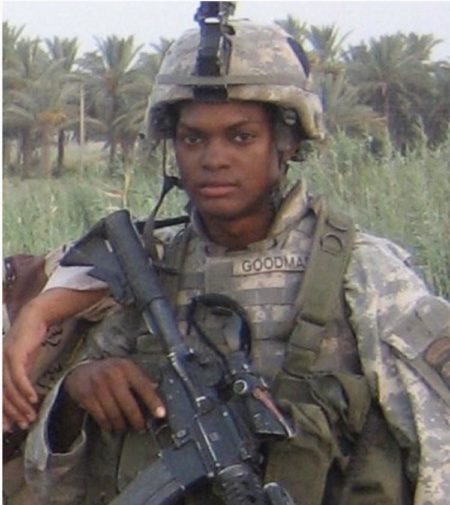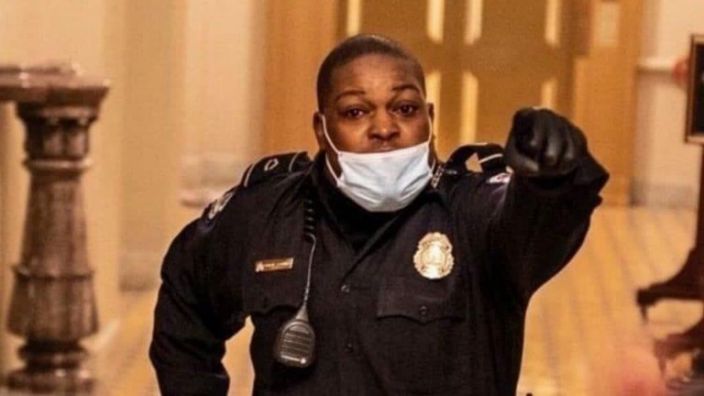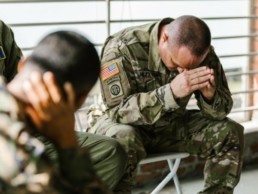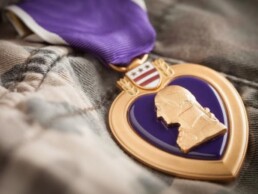Mesothelioma in Veterans: 4 Things to Know
Veterans today are at risk for developing a multitude of illnesses that can range in impact from mild to extreme. Whether it be a physical injury from one incident, or delayed onset symptoms as a result of prolonged exposure to certain hazards, the life of a veteran can be in danger long after they are no longer actively serving. One serious illness that veterans can be at risk of developing is mesothelioma. Here are some things that all veterans should know about this dangerous cancer:
1. Veterans make up 30% of those diagnosed with mesothelioma in the United States.
Mesothelioma is a rare form of cancer caused by the inhalation or ingestion of asbestos fibers. Asbestos is a mineral that can be found in various construction materials, especially in products used prior to the 1970s. Due to its average 10-50 year latency period, mesothelioma does not usually present itself until much later that the asbestos exposure occurs.
While all veterans and active duty service members are at risk for having been exposed to asbestos, you are more likely to have been exposed and develop mesothelioma if you served between the years 1930 and 1980. This is due to the high volume of asbestos products being used and the low restrictions of their use.
There is an even higher correlation between mesothelioma and navy veterans. Asbestos-containing materials are especially common in shipyards and shipbuilding materials, and being in tight spaces can increase the risk of asbestos fiber inhalation. Veterans who served in this branch should be high-alert for mesothelioma symptoms.
2. Mesothelioma can affect more than the lungs.
Mesothelioma is often thought of as only being a type of lung cancer. However, this disease has various types that can impact different parts of the body. Each type of this cancer also comes with a different set of symptoms. The most common form of mesothelioma is pleural mesothelioma, which affects the lining surrounding the lungs. This type of mesothelioma is responsible for about 80-90% of diagnosed cases. Symptoms of pleural mesothelioma might include chest pain, a persistent cough, coughing up blood, shortness of breath, fever, and night sweats.
The next most common form of this cancer is peritoneal, which affects the lining that surrounds your abdominal organs. Peritoneal mesothelioma can include symptoms like abdominal pain and swelling, weight loss, and even blood clotting.
The two other, more rare, types of mesothelioma are pericardial and testicular. Pericardial mesothelioma affects the lining surrounding the heart, and testicular mesothelioma affects the lining around the testicles. Symptoms of mesothelioma in your heart include chest pain and an irregular heartbeat. And for testicular mesothelioma,you might experience testicular pain, scrotal swelling, and you might even notice a mass.
3. Asbestos exposure is possible even after active duty.
While exposure to asbestos might be more likely to occur during active duty, veterans can also be at risk for exposure depending on their career path after serving. Because of skill sets gained from your time in the military, many veterans may choose to follow careers in engineering, construction, or mechanics. These occupations are all at risk for asbestos exposure due to the products used.
You may also be at risk after your years of active service from secondhand asbestos exposure. Secondhand exposure can occur when there are asbestos fibers left on your uniforms or personal belongings, and you end up inhaling or ingesting them. You could also come into contact with someone who is still serving and in the presence of asbestos-containing materials, which could put you at risk.
4. You have resources to help.
If you have suspected symptoms of mesothelioma, it is crucial to visit a doctor. Early diagnosis can be critical in the setup and success of mesothelioma treatment. However, both the treatment for mesothelioma and the illness itself can greatly impact your financial situation and your ability to provide for yourself and your family. Luckily, organizations have recognized this and have implemented ways to help.
The U.S. Department of Veteran Affairs (VA) recognizes illnesses due to asbestos exposure during service and has made financial benefits available for things like expensive treatments and potentially lost wages. Veterans can file a mesothelioma VA claim, or an asbestos-related lung cancer claim, both of which are given a 100% disability rating. The VA can also assist with finding specialized care through VA accredited hospitals.
Life after active duty can be a difficult period of adjustment and you may still feel the impacts of your time in the service for years to come. You can set yourself up for life-long success by arming yourself with as much information as possible and the knowledge that you have help available to you.
3 Ways to Support a Beloved Veteran with PTSD
Veterans have provided a great service to our country and it often comes with significant personal sacrifice. Whether they have been home for several years or just returned from deployment, conditions such as post-traumatic stress disorder (PTSD) can develop and persist. In fact, between 11 to 12% of veterans who served in the Gulf War, and the Iraqi Freedom and Enduring Freedom operations suffer from PTSD; the figure is even greater at 30% for veterans who served in Vietnam.
Loved ones play a significant role in supporting veterans with PTSD and can make a huge difference with it comes to their quality of life. Here are three ways you can support your loved one if they are suffering from PTSD:
Educate and raise awareness
Educating yourself and raising awareness for others is key to supporting a loved one with PTSD. It is a serious condition that, if left untreated, can lead to depression, drug and alcohol abuse, incarceration, and even suicide. The need for education and awareness is evident by just how common it is, which is often ignored, misinterpreted, and even sensationalized by the media. With the number of diagnosed cases jumping to 50% in the past year alone, people must be made aware of this condition to reduce the stigma attached to it.
There are various misconceptions that people have about PTSD. For one, it is often thought that the condition develops immediately after a traumatic experience when PTSD can actually surface years after the event has passed. However, it is possible to recover from PTSD, contrary to popular belief, and maintaining the right treatment program on a consistent basis is the key to achieving rehabilitation.
Ensure veterans are cared for
Reintegrating back into normal life can be difficult for veterans, even years after they have served. It is especially challenging for veterans under unique circumstances, such as those with physical and psychosocial medical conditions like permanent injuries or PTSD. According to the US Department of Veteran Affairs, about 1.7 million veterans received mental health services last year.
Navigating these conditions to live life to the full can be challenging without support, which is why veterans need special care. In these cases, it is helpful to enlist the help of healthcare professionals, like nurses. Nurses with MSN qualifications are great because they are experienced in dealing with holistic health, which is especially valuable when reintegrating veterans back into civilian life. They’re adept at administering preventive and psychosocial care and making evidence-based decisions while being compassionate to their patient’s needs. These professionals understand the nuances that come with veterans’ sometimes complex needs and implement programs that are crucial to their recovery. By doing so, you can help support your loved one with the proper interventions during such a critical time.
Help veterans adjust at home
Creating a healthy home life is of the utmost importance for veterans with PTSD. One of the most difficult parts of transitioning from military to civilian life once again is adjusting to life at home. Veterans may find switching from strict rules in military life to a more relaxing environment a bit disorienting. Helping them maintain a comfortable home environment can help them tremendously, while also being extremely patient with them during this time.
Friends and family can help veterans find a home, whether that’s a new apartment or house. For veterans that live with their loved ones, the arrangements must be well suited for the person returning home. This should include considerations for the survival skills they have learned, how they manifest at home, and how the family can adjust to assist them. Understanding how the need for safety, anger, and even mission orientation affects the dynamics at home can allow you to find a compromise to help veterans grow accustomed to civilian life once again. If needed, it will also allow you to seek help, whether from a nurse or another qualified professional.
Ultimately, supporting a beloved veteran should be aligned with their goals for recovery and reintegration. Asking for help from professionals, family members, and friends can make the experience much easier, and it can aid in your loved one’s recovery from PTSD.
The article was written by Reggie Ann James
Exclusively for PURPLE HEART FOUNDATION
Guardians of Democracy
The Purple Heart Foundation prides itself in recognizing military service members throughout the years. The United States military, law enforcement and first responders are an essential part of this country as they give their lives for our freedom and our safety. This past year has been very tough for everyone due to COVID-19, but it has been especially hard on our essential workers. The Purple Heart Foundation would like to extend a heart-warming thank you to these guardians for protecting our freedom and ensuring our safety. During this Black History Month, we recognize Eugene Goodman for his heroic efforts on Jan 6, 2020 during the attack on the capital building.
Eugene Goodman was born and raised in the Southside of Washington D.C. in the 1980’s. Goodman had humble upbringings and graduated from Central High School in Capitol Heights in 1999. Many of his teachers have come out expressing how truly proud they are of him. They described him as a quiet, helpful, and well-mannered student. It is said that, without even knowing it, he took on the role of peacekeeper at a young age by breaking up fights in the lunchroom on occasion. “To save this country, I mean for this person to save this country, I just feel so connected,” one of his teachers, Mr. Banks, expressed through tears.

Not long after, Goodman joined the United States Army, serving from 2002 to 2006. During his time in service, he was part of the 101 st Airborne Division, serving in the Iraq War. He left the military as a Sergeant to later join US Capitol Police in 2008. His former unit XVII Airborne Corps said he was a hero long before the incident on Jan 6. He is truly a guardian of his city, from a very young age.
On Jan 6 th , 2021, our Democracy was attacked by rioters. Shock and disbelief are among some of the reactions that most people had, as everyone watched live on national television as the United States Capitol building was being breached. At the time, both the House and Senate Chambers we’re in the middle of certifying the official win of President elect Joe Biden and Vice President elect Kamala Harris.
The world watched in shock and prayed for the safety of everyone inside as the unimaginable happened at the Capitol that day. It seemed like a movie that went on for hours. All those defending our democracy that day are heroes, but after getting a closer look at personal videos, security footage and more, one hero stood out, and his name was Eugene Goodman.
As Goodman saw the rioter’s approach his location, without a doubt, he took matters into his own hands and tried to diverge the crowd in front of him away from the Senate Chamber while calling for back up in another part of the Capitol. Eugene used himself as bate, knowing that they were only feet away from the Senate Chambers where Vice President Mike Pence and over 100 other officials prepared for the worst. Eugene Goodman’s actions that day may have save their lives, and for that he was recognized worldwide, and awarded the Army’s Distinguished Public Service Award. Both Republican and Democratic politicians, have commended Goodman for single-handedly taking action and preventing a bigger tragedy than what they had already been living.

Following the incident on Jan 6 th , 2021, Eugene Goodman’s actions that day have been highly recognized worldwide, and for those actions was awarded the Army’s Distinguished Public Service Award. Lawmakers have also proposed a bill to award Capital Police Officer Eugene Goodman with the Congressional Gold Medal; one of the highest awards a civilian can receive. As grateful as he is, it is reported that he is also afraid he might be targeted by extremists and said he would do the exact same thing again. During the Presidential Inauguration, Goodman got to escort Vice President-elect Kamala Harris to the stage. He was promoted to Sergeant at Arms of the United States Senate and was announced as such during the Inauguration where he received a standing ovation.
Eugene Goodman has become a household name since that very day. His courageous actions protected not only the people inside the U.S. Capital building, but also everything it stands for, as a symbol of democracy which is the very base of our country. Eugene Goodman goes down in history not only as a great human being but as a guardian of the city of Washington D.C. The Purple Heart Foundation is proud to recognize him as an outstanding member of society for his selfless acts, not only on Jan 6th but throughout his career. Men and women like Eugene, are the ones that keep our country safe and give us the freedom we take for granted every day. So, we thank you, Eugene Goodman, for your bravery, valor, and lifetime of service to this great nation.

SOURCES:
https://en.wikipedia.org/wiki/Eugene_Goodman_(police_officer)
Doing right by Ms. Wright
In March 2020, as the deadly coronavirus quickly spread all over the world, the Purple Heart Foundation started to pivot it’s focus on programming to better help the veterans being affected by the pandemic. 43 of the 50 states, that make up these United States of America, shut down and/or issued a stay-at-home order to prevent the virus from spreading to more people quicker. However, these necessary health precautions made it difficult for businesses to keep paying their employees, or even to stay open much longer. Many businesses closed or downsized, causing the unemployment rate to reach unprecedented levels for most tradesman and service-related jobs…ideal jobs veterans sought out in order to utilize their skills, work with their hands, and start new careers after their service. Once these statistics became clear, the Veteran Assistance Grant program was born.
The Purple Heart Foundation’s Veteran Assistance Grant program was created to cover emergency debts a veteran might be facing due to the extreme circumstances created by the coronavirus pandemic. The program was designed to bridge the gap for veterans in-need.
For example, U.S. Air Force disabled veteran, Ms. Wright, became unemployed in April 2020 due to the coronavirus pandemic. Her car was inoperable, and she couldn’t afford to fix it and continue to pay for Uber rides to and from interviews and the grocery store while she looked for work. The Purple Heart Foundation was able to collect all Ms. Wright’s information regarding her situation and approve her for a Veteran Assistance Grant to help pay for her car repairs. Ms. Wright can now search for employment and still meet her other monetary responsibilities without spreading herself too thin, financially or otherwise.

After receiving her grant, we caught up with Ms. Wright and this is what she had to say:
“Thank you for not only awarding this amount, but thank you for being there for veterans in their times of need. Feeling unsure about what’s going to happen with my car, this amount awarded allowed me the security of being able to maintain having a car, which is a critical part of accomplishing daily needs. Even though these circumstances affect everyone in our country, it’s an honor to know we can be there for each other even during a pandemic.”Ms. C. Wright (Las Angeles, CA)
The Purple Heart Foundation does not receive government funds and relies 100% on donations from supporters like you. This holiday season, with coronavirus numbers peaking again, we expect even more veterans in situations like Ms. Wright’s will need your help. The Veteran Assistance Grant could prevent veterans from becoming homeless in these cold winter months or prevent a veteran from having to choose between keeping the lights on or putting food on the table.
With your gift of $25, $50, $100, $250 or more, you could help more veterans like Ms. Wright feel the security of having a support system to tackle the struggles they are facing during these difficult times.
Help make this holiday season a little easier for a veteran facing hardships. Or, if you (or someone you know) are a veteran facing a similar situation, please apply for assistance with the Purple Heart Foundation today.
Mesothelioma Awareness Day: How This Disease Continues to Impact Veterans
Every 26th of September, Mesothelioma Awareness Day (MAD) is recognized as a day to spread information about this rare disease and educate people about the dangers of its only known cause, asbestos exposure. Of the nearly 3,000 Americans diagnosed with mesothelioma each year, 30 percent of this total are veterans. It is important that we acknowledge the veteran population affected by this disease and continue efforts towards finding a cure.
What is Mesothelioma?
Mesothelioma is a form of cancer that primarily affects the lining of the lungs, but can also be present in the lining of the abdomen and heart. Due to its prolonged latency period, symptoms of this disease typically do not arise for nearly 10 to 50 years. When symptoms do begin to appear, oftentimes, the disease has already progressed to an advanced stage, making treatment options extremely limited.
Historically, the cause of mesothelioma cancer has been linked to asbestos exposure. Asbestos is a naturally occurring mineral that was often used in materials prone to heat and friction. When asbestos is disturbed, airborne fibers have the ability to be inhaled or ingested, gaining access to our internal organs. These fibers lay dormant within our bodies where they cause inflammation and scarring, leading to the development of tumors.
For those diagnosed with mesothelioma, the prognosis is most often very poor. Patients who are diagnosed at an earlier stage are given between 16 to 21 months to live post-diagnosis, which is a limited amount of time to pursue treatment.
How Are Veterans Affected?
Service men and women of our military are susceptible to asbestos exposure as a result of mass historic use of asbestos-products. While there has been a decline in asbestos usage and stricter regulations, asbestos may still be present on military bases, naval ships, and aircraft equipment. Because of this, there is a steady diagnosis rate amongst veterans. This will remain unchanged until asbestos is completely banned in the United States or the government issues a mandate for all asbestos to be removed from military locations.
Those who have served our country between 1920 to 1980 are at the highest risk of developing an asbestos-related disease, as this was the height of asbestos usage. Locations such as the sleeping barracks of ships used in the Navy were tight and limited, allowing for a high concentration of fibers to be present if asbestos was disturbed. Other branches that are affected by asbestos include the Air Force, Army, Coast Guard and Marines through asbestos materials used in things such as aircraft braking systems, military vehicles, and fireproofing for ships.
An additional risk factor that should be kept in mind is the use of asbestos in other countries. Members of our military can also be exposed while on deployment and stationed in areas that are war-torn, and as a result, have created large amounts of debris and rubble.
Across borders, many older buildings and homes on United States bases could be harboring asbestos-containing materials, such as roofing and flooring tiles. While it is difficult to avoid exposure because asbestos fibers are invisible to the naked eye, with the right protective equipment and knowledge, we can work to keep our military safe from these asbestos-related diseases.
Symptoms & Detection
Veterans that believe they may have been exposed to asbestos should receive checkups frequently and monitor their health closely. Symptoms of mesothelioma often mimic those of other less serious illnesses and should be evaluated no matter how seemingly minor. Some of the symptoms are as follows:
- Abdominal swelling
- Breathing difficulties
- Muscle Weakness
- Chest pain
- Coughing
Testing such as X-rays and CT scans can provide insight into underlying symptoms and help identify any abnormalities. Blood tests should also be performed regularly to see if there is an overabundance of mesothelin present in the blood, which may hint at malignancy. It is vital to monitor symptoms immediately. This will allow for the best chance of survival and successful treatment if the disease is caught early.
What to do if You’re Diagnosed
If you are diagnosed with mesothelioma, the next step is to understand your treatment options. It is important to research and connect with an oncologist that specializes in mesothelioma cancer, as they will be able to provide you with the latest and most effective treatments specific to your diagnosis. Cancer treatment costs can oftentimes be burdensome to families, and when diagnosed with mesothelioma, there is typically a party that is liable for the disease that you have developed. To manage these costs better, it is your right to seek legal action, as there are victim compensation funds set in place to ensure those who are affected by asbestos exposure receive the funding they deserve for their treatment.
How You Can Help
Mesothelioma is one of the lesser-known forms of cancer, receiving minimal coverage in mainstream oncology. With the support of others and by spreading awareness, this cancer will not only be diagnosed less, but a cure could be on the horizon. Through donating to the Purple Heart Foundation, the MOPH National Service Officer program will continue to help veterans fight for their VA benefits and receive much-needed care for injuries and illnesses, such as mesothelioma, that stem from service to our country.
Honoring Purple Heart Month
As we begin the month of August, it is our great pleasure to welcome you to
Purple Heart Month!
This month is dedicated to paying our respects to all the brave men and women wounded or killed in combat. The official Purple Heart Day is observed on the 7th day of August each year, commemorating the historic day in 1782 that General George Washington, Commander-In-Chief of the Continental Army, commissioned the first Purple Heart Medal, originally called the Badge of Military Merit.
The Badge of Military Merit is a purple, heart-shaped piece of silk bound with a thin edge of silver with the word merit embroidered in silver across the face. Only 3 Badges of Military Merit were awarded. The Badge of Military Merit was redesigned and re-commissioned in 1932 by General Douglas McArthur in honor of George Washington’s bicentennial birthday. Now known as the Purple Heart Medal – it is the oldest military award, first being awarded to soldiers in World War I and still given to soldiers today.
A presidential order signed in 1942 permitted the Purple Heart Medal to be awarded to all branches of the military including the U.S. Coast Guard. It was World War II, when the qualification to receive the Purple Heart Medal changed to honor those who were wounded or killed in combat – that is why it’s recipients often call it “the medal that nobody wants”. It is unknown how many soldiers actually received it. However, we know that the soldiers listed below are some of the most awarded Purple Heart Recipients in history:
Robert T. Frederick, U.S. Army: World War II (8)
David H. Hackworth, U.S. Army: Korean War (3), Vietnam War (5)
Joe Hooper, U.S. Army, Medal of Honor: Vietnam War (8)
Robert L. Howard, U.S. Army, Medal of Honor: Vietnam War (8)
William Waugh, U.S. Army: Vietnam War (8)
It took the Purple Heart medal many years to evolve into what it is today. Today, on the reverse of the medal, “FOR MILITARY MERIT” is inscribed. The medal itself is made of brass with a gold color to it, and also contains a bust of George Washington and his coat of arms. The purple color represents the blood of all those who have made sacrifices in war, but traditionally it represent the courage of those who serve. The original color of the medal George Washington created was purple, so it was only fitting that it would be used to honor his memory in the new medal.
The Military Order of the Purple Heart (MOPH) was formed in 1932. It is composed exclusively of men and women who have received the Purple Heart Medal and is the only Veteran’s Service Organization whose membership is comprised solely of “combat-wounded veterans”.
The Military Order of the Purple Heart Service Foundation, also known as the Purple Heart Foundation, was later created in 1957 as a non-profit organization. For more than 60 years, the Purple Heart Foundation has solely dedicated itself to funding programs and services that support our nation’s heroes. Donate to show your support of the Purple Heart Foundation and to help us continue to serve our nation’s veterans who have already sacrificed so much.
DONATE






